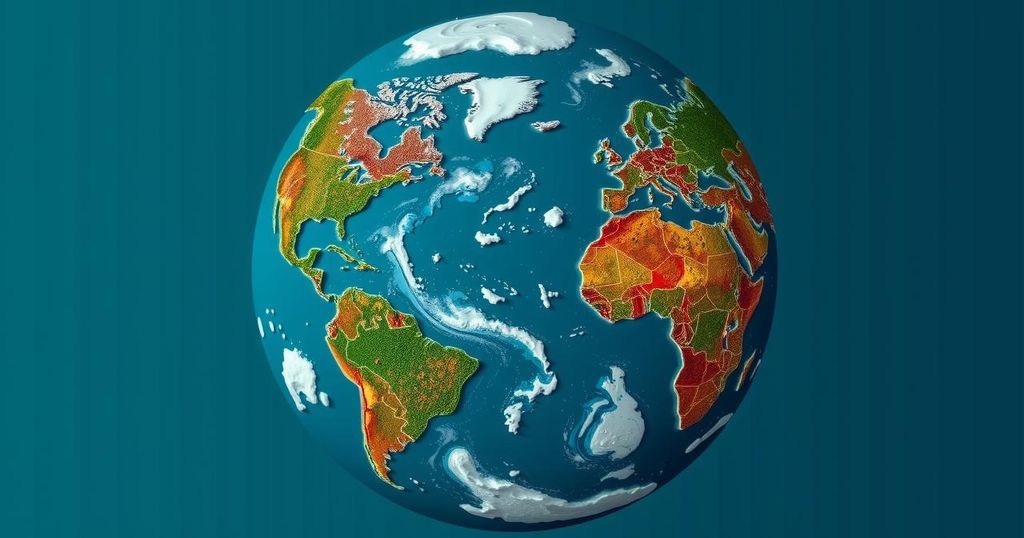Criticism of $300 Billion Climate Deal at COP29 Highlights Accountability Gaps

Countries at COP29 have set a $300 billion annual climate finance target for developed nations to assist poorer countries, yet this deal was criticized as insufficient. Experts have pointed out the absence of an accountability mechanism, raising concerns about the commitment from wealthier nations. Developing countries express feelings of betrayal, demanding greater financial and technological obligations from historically responsible nations as they confront climate impacts.
At the recent COP29 summit held in Baku, Azerbaijan, countries reached an agreement to allocate $300 billion annually to support developing nations in addressing climate change impacts. However, this commitment has been met with significant criticism from representatives of these nations, who deemed the funding inadequate to meet the urgent needs driven by climate challenges. Experts, particularly from China, have expressed concerns over the absence of an accountability mechanism for developed nations, questioning the likelihood of compliance with the pledges made during the conference.
The discussions at COP29 centered around the New Collective Quantified Goal for climate financing and the regulation of the global carbon market as prescribed under Article 6 of the Paris Agreement. Alongside the commitment of $300 billion per year from wealthy nations, a broader climate financing target of $1.3 trillion annually by 2035 was established to bolster the climate initiatives of developing countries.
Despite reaching a consensus, numerous representatives voiced their disappointment throughout the negotiations, which were reportedly marred by discord and close calls. The Chair of the Alliance of Small Island States, Cedric Schuster, emphasized the dire situation facing island nations due to rising sea levels, stating, “How can you expect us to go back to the women, men, and children of our countries with a poor deal?”
The sentiment of betrayal was echoed by several officials, including Sierra Leone’s climate minister, Jiwoh Abdulai, who criticized the lack of commitment from wealthier nations. Furthermore, Tasneem Essop, the executive director of the Climate Action Network, denounced the negotiations as a failure, remarking, “This was meant to be the finance COP, but the Global North turned up with a plan to betray the Global South.”
The Chinese delegation underscored the necessity of adhering to the principle of “common but differentiated responsibilities,” reaffirming their commitment to climate action in line with the Paris Agreement. Amid increasing pressure on China to assume greater responsibility, experts have cautioned against unreasonable funding demands that overlook its status as a developing nation, which has considerably lower per capita carbon emissions compared to developed countries.
Additionally, prominent voices in China’s climate policy sphere have highlighted the hypocrisy of developed nations, who frequently call for climate action while simultaneously undermining the capabilities of developing countries. They contend that wealthy nations must recognize their historical responsibility for emissions and should take on substantial financial commitments rather than perceiving climate aid as a mere charitable act.
In summary, the recent COP29 summit has underscored the deeply rooted tensions between developed and developing nations regarding climate finance obligations. The agreement of $300 billion per year has not alleviated the concerns of developing nations, who require more substantial and reliable support to combat climate change, along with a robust accountability framework to ensure that wealthier countries uphold their promises.
The COP29 summit serves as a significant platform for countries to discuss and negotiate climate financing, particularly aimed at assisting developing nations that are disproportionately affected by climate change. The controversy surrounding the financial commitments made by wealthy nations highlights the ongoing struggle to achieve equitable climate action and financial support, as poorer countries often lack the resources and infrastructure to implement effective climate strategies. The discussions also reflect broader issues of accountability and responsibility in the global climate governance framework, particularly the need for developed countries to recognize their historical roles in contributing to climate issues.
The outcomes of the COP29 summit reflect a complex interplay of negotiation failures and unmet expectations between developed and developing nations regarding climate finance. While the commitment of $300 billion annually is a step forward, it has been described as insufficient in light of the dire needs faced by vulnerable countries. Without a strong accountability mechanism and a genuine commitment from wealthy nations, the path towards meaningful climate action remains fraught with challenges.
Original Source: www.globaltimes.cn






